Interviews
Laurie Anderson as Fenway Bergamot on Punctuation, God and Kierkegaard
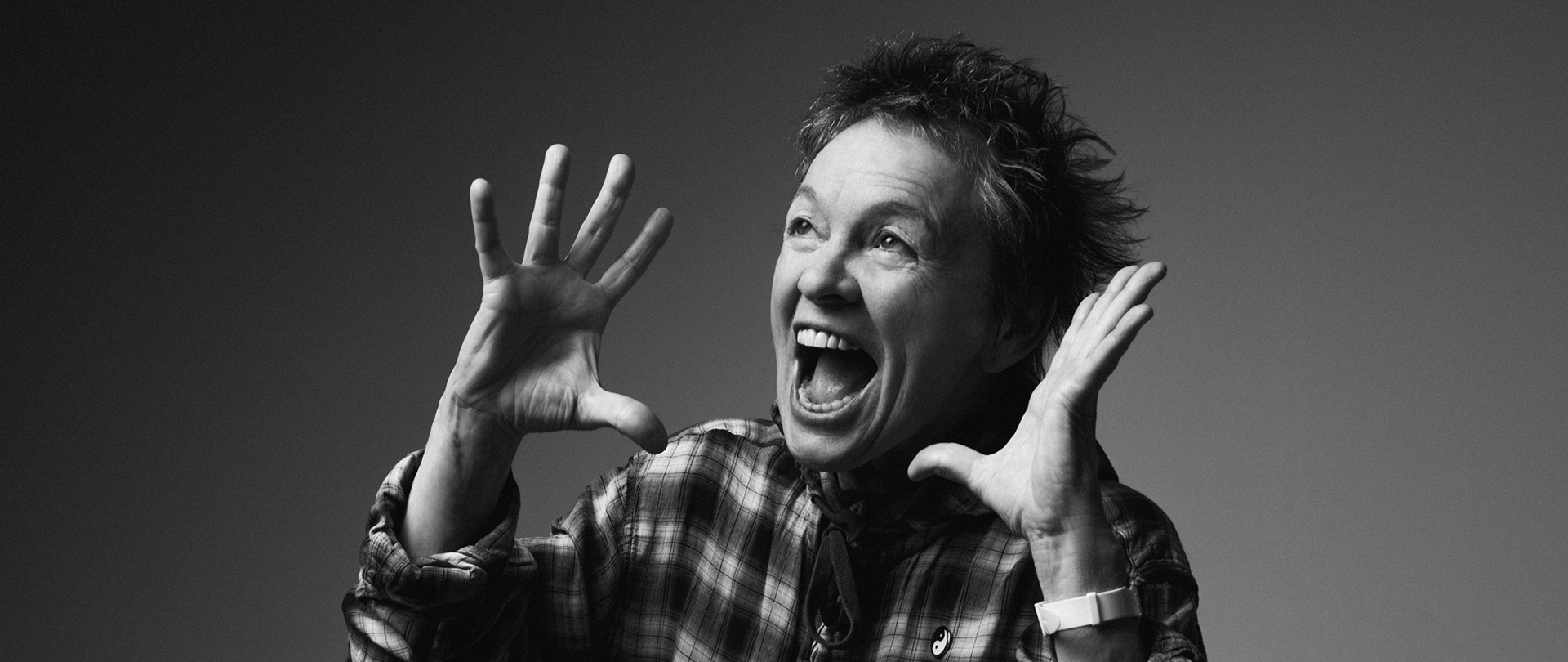
The centerpiece of Laurie Anderson’s latest album, Homeland, is a ten-minute track featuring a spoken-word monologue by her alter ego, Fenway Bergamot. Fenway, who was born in the late 1970s when Anderson developed a vocal filter that deepened her voice into a bass profundo monotone, appears on the album cover, with his greasepaint mustache and eyebrows, posing a sly, knowing glance at the camera. On “Another Day in America,” he expounds on punctuation, God, Kierkegaard, and the vagaries of life in the twenty-first century.
Rather than tedious or preachy, the song is elliptical and haunting, enthralling in its buzz of logical and emotional connections. In that regard, it is quintessential Anderson: both cerebral and emotional, intricate in its design yet intimate in its direct engagement with the audience.
To listen to Homeland is to immerse yourself into her music, which is built on violin drones and features contributions from Antony Hegarty, John Zorn, Four Tet, Lou Reed (who is also her husband), and a troupe of Tuvin musicians. It’s her first album since 2001, but it proves that Anderson still has a considerable talent for summing up the times in unusual—and unusually sympathetic—ways.
As a visual and performance artist, as an art instructor and lecturer, and as a musician and studio technician, she gives the impression of being simultaneously fascinated and puzzled by the world. She gives the sense of a mind continually working to make connections, to make sense of what she sees and hears and reads. There is certainly a thrill in that sense of constant discovery, yet there’s a fatigue there also, as new thoughts constantly interrupt old ones. There is no way to turn it off.
STEPHEN DEUSNER: What does the character of Fenway Bergamot allow you to do that you might not be able to do otherwise?
LAURIE ANDERSON: Just to be a kind of jump-cut character, to talk in a way your mind might jump from thing to thing. When you’re having a conversation, you might be thinking five different things—the color of a shirt, what you have to do later—but you’re still talking to some person. Not that it would be good to always say what you’re thinking. It would actually be pretty chaotic, and you probably wouldn’t endear yourself to too many people. But still, there’s something about the way your mind flows, and I’m really trying to get into that voice. That voice started out as the voice of a pompous windbag. It was fun to tweak people who are always telling you what to do. Every time it came out of the box every few years, I would use that voice again. This time when it came out, it was meandering and melancholic, and I thought it was interesting. So that’s what it allowed me to do—to talk in a way that if I did it in my own voice, you’d be like, whoa, you’re losing the thread. But there’s something about that monotone with a little bit of oddness and quirkiness and some keyboard paths beneath it. It allows for mental drift, and I’d love to have people just move through that world and let their minds go that way.
DEUSNER: How did you devise his physical appearance? He looks a bit like Groucho Marx.
ANDERSON: I was just doing that as a goof. I was doing a photo session and they had some eyebrows there, and I started cutting them up and putting them on. I thought, hey, that looks like Fenway Bergamot. Let’s take a picture. It wasn’t any big thing, but then I thought, I’m so sick of being on record covers. How about if my alter ego takes a shot at it. It’s the perfect job for him.
DEUSNER: Can you tell me about “Beginning of Memory?” The idea of the sparrows burying their dead in their memory is fascinating. Where did you discover it?
ANDERSON: I love comedies. A friend said, you should read The Birds. It’s hilarious. It really was. It’s a really hot summer in Athens, 2,200 yeas ago, and two poets are burned out on the city. This city is full of frauds. All the poets are creeps, everyone’s a poseur, let’s get out of here. So they trudge out of the city, and on the road this one poet has an idea. He looks at these birds and says, Listen, birds, we’ve got this great idea for you. You’re missing this huge financial opportunity because every time the gods come down from heaven to appear as a bull or rape a girl, they go through where? Your territory. You could be charging them. And every time humans make a sacrifice, the smoke goes up to where? You territory. Again, a lost economic opportunity. The poet says, You have to build this wall. So the birds build this big border where they can charge this tax. It’s just really, really funny. The birds realize if we build a wall, it means we would have to work, and we’re birds. We don’t work.
I was reading a lot of stuff back then about economics and why people work. In fact, Homeland started that way. On some of the early versions of it, I would play along instrumentally and talk about my favorite books. “There’s a spectre haunting Europe.” The beginning of the Communist Manifesto, ending with, “Workers of the World unite. You have nothing to lose but your chains.” What an incredible book. Written just a few months apart was another book by Herman Melville, Bartleby the Scrivener. It’s a totally different approach to work. Bartleby is a legal copyist, a drudge, a complete geek who comes in every day and does this mindless stuff. One day, his boss says, Bartleby, you have to copy this. And Bartleby finally says, I prefer not to. And you think, “you prefer not to? What does that mean?” So these issues were on my mind.
In The Birds, there was this little footnote about a lark. It just referred to the story about a lark. Not being an ancient Greek person, I had no idea what the story of the lark was supposed to mean. So I was digging around trying to find out what that referred to, and I found an older fable, which was this one about birds flying around before the beginning of the world. And this problem came up: what to do with the body of the father. That animates and drives so many ancient Greek tragedies—physically, what do you do with the body? How do you honor the father, honor the hero or the parents? So many plays are driven by that particular question. So they just gave that problem to the birds and tried to work it out that way. I was thinking of it as not just an ancient tale, but something that we could relate to—how to live in this groundless place where things are becoming more and more abstract.
DEUSNER: That song is particularly effective coming at the end of the album, where it ties everything up… not necessarily neatly, but it colors what comes before.
ANDERSON: It’s funny because in the live show, it was always the first thing. I thought, maybe I’ll flip it and see if it works that way. It’s a way to look at some of the other stuff. I think it’s in a better place last. Although when I do more shows, it’ll probably be first.
DEUSNER: Were most of these songs conceived live?
ANDERSON: I decided not to sit in the studio and scratch my head and wonder what to write about, but to just go out and try writing about “X.” So, a lot of things were just sketches, and I tried to work with people who would not necessarily play the way I was used to playing, so that I would get another handle on the music. That really did work, because it opened the whole thing up. Suddenly it was, “Oh you can do it like that! Oh, that could be a groove instead of a drone, or that could be a drone instead of a groove.” I just tried to get out of my comfort zone with this one. Some things were improvised on the spot. I would just try things. That’s the biggest change for me, learning to improvise stuff. It really is a lot thanks to John Zorn, who was always like, “Come on over and play at the Stone.” Just play? You mean go out and play with no idea what we’re going to do? “Yeah! Come on.” It’s been so much fun doing that. And Zorn and Lou and I have this little trio where we go out and do that. I’ve never had that kind of thrill where you go out and you have no idea what you’re going to play. We just played at the Montreal Jazz Festival. Jazz in particular is supposed to be the improvisational form of music, but when you actually hear jazz, it’s so far from that actually. They’re playing lines you’ve heard before. There’s Bird, there’s Davis. It’s a real vocabulary, for better or for worse. I’m not saying it’s better not to have a vocabulary or to have one, but we don’t have one at all. We’re such different musicians, John and Lou and I, that we come up with this weird, strangely symphonic, odd, angular stuff that none of us would play by our selves. So it’s a thrill.
DEUSNER: Can you tell me about some of the musicians on this album? What do they bring to your music?
ANDERSON: The Tuvins were playing these instruments that were sort of violins—two-stringed instruments, close to the Chinese erhu, which is a very throaty rasp. I love that because the record is really built on violin riffs, even though a lot of times they were taken out at the end. They all started with these filters that I’d been building from software. So, I thought this would be a very interesting way for stringed instruments to talk to each other: the Western vibrato thing, then the Tuvin stuff, then Eyvind Kang’s viola, which is a middle eastern thing via Persia. There are a lot of string arrangements that are really quite simple, but texturally I really wanted them to be rough and not so perfect. And there aren’t as many synths on here either, because of the Tuvins. I was watching them play their banjos, and I thought, boy, you could really get a lot of music out of that, so why am I going to Synthland all the time? So, that was one of the inspirations.
DEUSNER: The bass really stands out on this album, almost like it’s commenting on the songs themselves.
ANDERSON: I just love low end. There are lots of different bass sounds, particularly some sounds that were invented by Peter Scherer. He’s a synth player, but he is a genius sampler, so some of those [imitates bass drone] things, they’re real basses but sent through about 17 filters. It’s the same reason I really like heavily filtered violin. It’s not just to make it fancy. When you’re playing violin and your head is next to the instrument, you’re hearing all of this crunching and groaning and overtones and harmonics that never reach the audience. So the filters I use bring those things up off the noise floor into the range of hearing. It’s really what the violin is doing, but you can’t always hear it so well. So that’s why I’ve been using those filters.
DEUSNER: A lot of artists find that technology very distancing, yet you seem to locate a lot of humanizing possibility in it.
ANDERSON: For me they’ve always been just boxes. People ask me, How do you feel now that everyone’s doing technology? It’s just, “How do you feel about using a pencil?” It’s just stuff that you use. It’s not like I worship at…
Well, I do kind of worship it, and sometimes I do feel like a tech salesman. “Look at this box. It’s so cool and fast.” I try to keep that in check and not go off on it, because it’s just stuff. It’s no big shock to anybody that when you push a button, something big can happen. So, I’m trying to appreciate it for what it is and trying not to have to get the latest thing all the time. I’m really conscious of being in this consumer game, and it’s just making me a little crazy. The book that I’ve been reading, which is my most recent inspiration, is called Capitalist Realism [by Mark Fisher], whose premise is that it’s easier for people to imagine the end of the world than to imagine the end of capitalism. To me that’s like, “Whoa, go and buy stuff. Get it.” That engine, you can feel it everywhere—not that these massive state-operated fascistic so-called socialist systems were any better. They were falling aprt too, and were really oppressive. But this is the way the world is now, so I thought, how could there be more empathy somewhere in the songs, less worship of stuff, a little more tenderness, a little more ragged edges?
That’s what the record’s trying to be—not so perfect. That last piece, “Beginning of Memory,” doesn’t tie things up because things can’t be tied up. Our lives are just too messy. And that’s okay. I love a great mess. So, I’m just trying to express what it’s like to live in the middle of that conflict.
DEUSNER: This seems like a deeply empathetic album. Does that make performing these songs emotionally exhausting?
ANDERSON: No. I feel a lot of contact with people doing these songs. They’re intimate. I’ve never been a confessional singer-songwriter, but this probably comes the closest in some ways, especially the kind of love song for my father called “The Lake.” I just wanted to make something for him in terms of a personal statement, something very simple because he was a very simple guy. And, in fact, when I was a kid, he was the one who was singing and dancing and taking me for ice cream. He was so charming, always telling funny stories and jokes, and the women were like, eat you cereal, read your book. I thought, men are these carefree creatures. They’re fantastic. Not a care in the world. Those kinds of first impressions of who’s who really never leave you no matter what, no matter what. That was a song of gratitude for that impression of the sweetness of men that I felt as a child.
- Lists13 years ago
Top 10 Country Music Albums of 2010
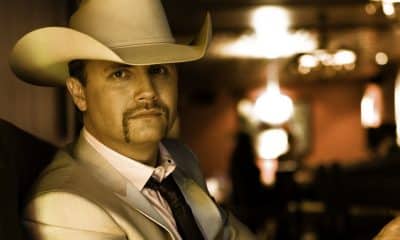
 Interviews5 years ago
Interviews5 years agoJohn Rich – The Interview
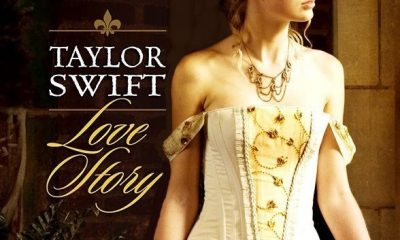
 Song Reviews16 years ago
Song Reviews16 years agoTaylor Swift – “Love Story”

 Interviews5 years ago
Interviews5 years agoHoneyhoney on Hiatus: Revisit our 2008 Interview with Suzanne Santo
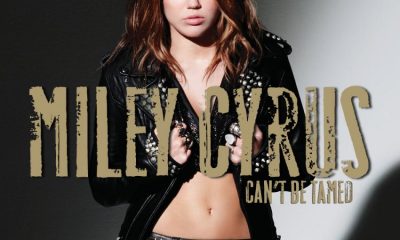
 Album Reviews14 years ago
Album Reviews14 years agoAlbum Review: Miley Cyrus – Can’t Be Tamed
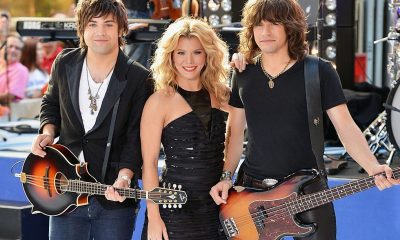
 Song Reviews6 years ago
Song Reviews6 years agoThe Band Perry – “Hip To My Heart”
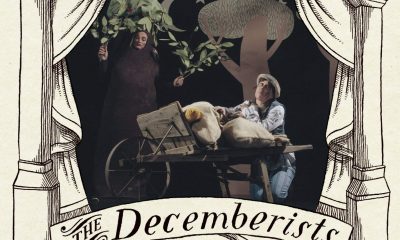
 Columns5 years ago
Columns5 years agoThe Link Between Folk Music’s Past and Present
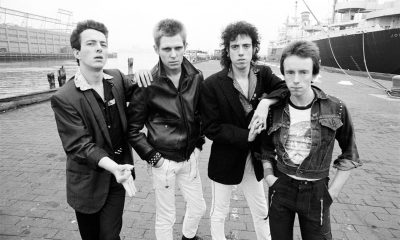
 Columns5 years ago
Columns5 years agoIs Marketing Killing Rock and Roll?

